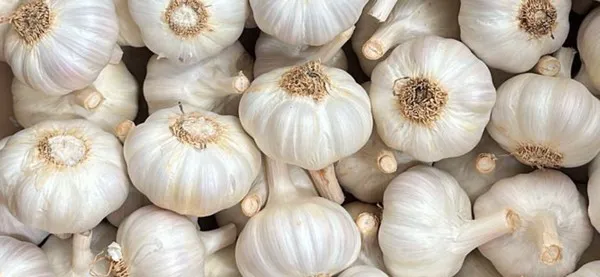Things seem to be changing when it comes to garlic. "The situation is rather complicated in southern Italy due to the prolonged rain of past few weeks and to forecasts for the next few days. All of this humidity could compromise quality. We are now waiting for the next 15 days to try and assess how things might go," explains Antonio Tuccillo, administrator at Agrimpex Farming.
"Financial speculation is happening again in China, which could overhaul our expectations we have. Following a reduction of cultivated areas in China, the price of the produce in cold storage units has in fact increased over the past 5-6 weeks, matching the price of the new produce. This situation is not exactly understood by the Western markets, where stored produce usually loses value when the new one becomes available. Sometimes even by 30-50%."

Cold-stored garlic (photo supplied by Antonio Tuccillo)
"In China, where markets are used to receiving both stored and fresh produce, the value does not change significantly. This unexpected occurrence constitutes a breather for the sector as early garlic is currently being harvested in Spain and Italy, which will be followed by France."
According to Tuccillo, it is also worth mentioning that the price increase in China also revived the interest of Brazil for the Spanish produce. "In Brazil, in fact, the customs system favors the entry of produce from Spain and/or Egypt with respect to that from China. It should also be mentioned that, in Spain, the extreme drought registered in Andalusia will probably mean smaller grades and, therefore, lower yields per hectare. This, together with the fewer areas sowed, could lead to a significant reduction in the volumes produced."
